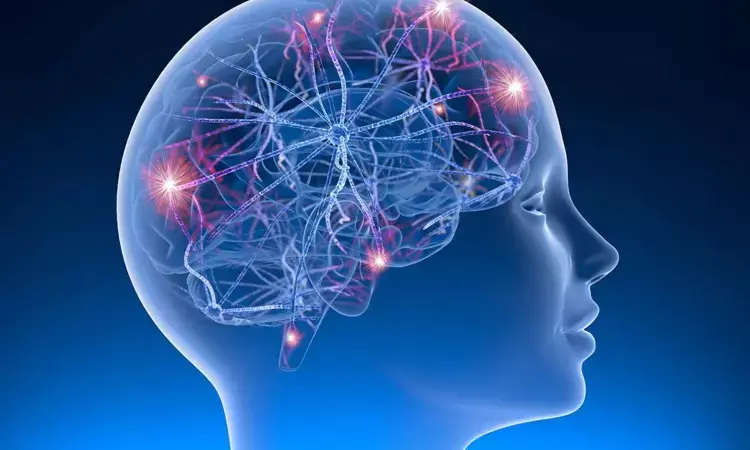- Home
- Medical news & Guidelines
- Anesthesiology
- Cardiology and CTVS
- Critical Care
- Dentistry
- Dermatology
- Diabetes and Endocrinology
- ENT
- Gastroenterology
- Medicine
- Nephrology
- Neurology
- Obstretics-Gynaecology
- Oncology
- Ophthalmology
- Orthopaedics
- Pediatrics-Neonatology
- Psychiatry
- Pulmonology
- Radiology
- Surgery
- Urology
- Laboratory Medicine
- Diet
- Nursing
- Paramedical
- Physiotherapy
- Health news
- Fact Check
- Bone Health Fact Check
- Brain Health Fact Check
- Cancer Related Fact Check
- Child Care Fact Check
- Dental and oral health fact check
- Diabetes and metabolic health fact check
- Diet and Nutrition Fact Check
- Eye and ENT Care Fact Check
- Fitness fact check
- Gut health fact check
- Heart health fact check
- Kidney health fact check
- Medical education fact check
- Men's health fact check
- Respiratory fact check
- Skin and hair care fact check
- Vaccine and Immunization fact check
- Women's health fact check
- AYUSH
- State News
- Andaman and Nicobar Islands
- Andhra Pradesh
- Arunachal Pradesh
- Assam
- Bihar
- Chandigarh
- Chattisgarh
- Dadra and Nagar Haveli
- Daman and Diu
- Delhi
- Goa
- Gujarat
- Haryana
- Himachal Pradesh
- Jammu & Kashmir
- Jharkhand
- Karnataka
- Kerala
- Ladakh
- Lakshadweep
- Madhya Pradesh
- Maharashtra
- Manipur
- Meghalaya
- Mizoram
- Nagaland
- Odisha
- Puducherry
- Punjab
- Rajasthan
- Sikkim
- Tamil Nadu
- Telangana
- Tripura
- Uttar Pradesh
- Uttrakhand
- West Bengal
- Medical Education
- Industry
Magnetic Seizure Therapy Preserves Cognition and Reduces Suicide Risk in Adolescent Depression: Study

Researchers have found in a new study that magnetic seizure therapy (MST) is as effective as modified electroconvulsive therapy (MECT) in its antidepressant effects but more protective of cognition and with greater suicidality improvement in adolescents with major depressive disorder (MDD). The research emphasizes that MST not only relieves depressive symptoms but also preserves memory, orientation, and executive functions, cognitive domains which are usually disrupted by standard electroconvulsive procedures. The study was published in the journal Rivista di Psichiatria by Wei Wang and colleagues.
Electroconvulsive treatment (ECT) has been a well-established treatment for severe depression for many years but carries the stigma of cognitive side effects, especially among teens with developing brains. Magnetic seizure therapy, a recently developed neuromodulation method, is designed to have similar antidepressant effectiveness with less cognitive dysfunction through the use of magnetic fields rather than electrical currents to produce therapeutic seizures.
This prospective, assessor-blinded randomized controlled trial (ChiCTR2500098032) was conducted from March 1 to April 30, 2025, at the Shandong Mental Health Center. A total of 120 adolescents aged 13–18 years with clinically diagnosed MDD were randomized 1:1 to receive MST (n = 60) or MECT (n = 60). The main outcome was the percentage change in Beck Depression Inventory-II (BDI-II) scores. Secondary outcomes were cognitive performance measured by the Montreal Cognitive Assessment (MoCA) and its subdomains (memory, orientation, executive function), suicidality as measured with the Columbia-Suicide Severity Rating Scale (C-SSRS), and adverse events scored according to CTCAE 5.0.
Measurements were conducted at baseline and 7 days following treatment, and the data were analyzed with repeated-measures ANOVA (RM-ANOVA), correlation, and Sobel mediation tests to examine the mediating role of cognitive changes in improving suicidality.
Key Findings
Participants: 120 adolescents with MDD (MST = 60; MECT = 60)
Study period: March–April 2025
Primary outcome: BDI-II decrease (MECT greater, not statistically different for response rate)
Cognitive performance: MST improved significantly MoCA total score, with gains on memory, orientation, and executive function in particular
Suicidality: MST resulted in more improvement and higher rates of remission
Mediation analysis: Improvement in cognition partially mediated suicidality decrease in MST group
Safety: MST generated fewer side effects and shorter times for reorientation
Trial registration: ChiCTR2500098032
The research concludes that MST has similar antidepressant effectiveness as MECT but with greater cognitive protection and enhanced safety for adolescents with major depressive disorder. These results make MST a viable therapeutic choice for adolescent depression that should be subjected to further long-term and multicenter studies to support its maintained efficacy and neurocognitive effects.
Reference:
Wang, W., Lu, Y., Mi, G. L., Li, X. J., Zhang, D. N., & Qi, S. F. (2025). Cognitive preservation advantage and efficacy balance of magnetic seizure therapy in adolescent Major Depressive Disorder: a randomized controlled trial revealing efficacy cognition decoupling phenomenon. Rivista di psichiatria, 60(5), 196–201. https://doi.org/10.1708/4583.45901
Dr Riya Dave has completed dentistry from Gujarat University in 2022. She is a dentist and accomplished medical and scientific writer known for her commitment to bridging the gap between clinical expertise and accessible healthcare information. She has been actively involved in writing blogs related to health and wellness.
Dr Kamal Kant Kohli-MBBS, DTCD- a chest specialist with more than 30 years of practice and a flair for writing clinical articles, Dr Kamal Kant Kohli joined Medical Dialogues as a Chief Editor of Medical News. Besides writing articles, as an editor, he proofreads and verifies all the medical content published on Medical Dialogues including those coming from journals, studies,medical conferences,guidelines etc. Email: drkohli@medicaldialogues.in. Contact no. 011-43720751


